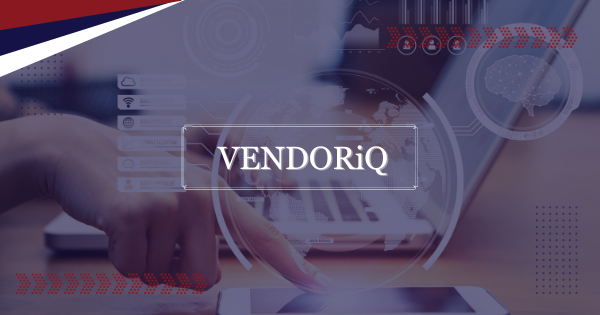Advisory by Author

Citizen Facing Digital Services in Local Government: More Than User Journeys – Webinar and Presentation Kit
Councils’ digital strategies often fail vulnerable citizens. By adopting empathic design and optimising existing tech, executives can improve equity and efficiency.

What is Model Context Protocol, Where is it Heading, and Why Should You Care?
Model context protocol (MCP) is a vital standard enabling AI agents to automate tasks in core enterprise systems, but requires immediate, strong governance for safe adoption.

VENDORiQ: AWS’s New Zealand Region – Business as Usual or a Sign of Shifting Priorities?
AWS’s New Zealand region is essential expansion, yet broader investment shifts toward high-risk, high-reward AI infrastructure will affect core cloud services.

Navigating the 2025 Microsoft Enterprise Agreement Reset
Microsoft is ending volume discounts on Enterprise Agreements to fund AI investment, forcing executives to shift from price negotiation to value management and governance.

VENDORiQ: Neo4j’s Infinigraph – A Step Towards a Unified Graph Architecture?
Neo4j’s Infinigraph architecture unifies transactional and analytical workloads at scale, simplifying data ecosystems and enabling real-time insights for AI.

VENDORiQ: Copilot Consolidation – Getting Value from a Classic Microsoft Bundling Strategy
Microsoft is bundling its specific Copilots into the main M365 license, signaling a shift to specialised AI tools embedded in daily workflows.

VENDORiQ: Is Your ‘Open Source’ AI Truly Open? A Critical Look at Vendor Claims
ICT leaders must scrutinise ‘open source’ AI claims; the provided code is often a wrapper for a proprietary, vendor-controlled backend, creating vendor lock-in.

VENDORiQ: ServiceNow’s Latest Agentic Features – Balancing Innovation, Structured Business Workflow and Risks?
ServiceNow’s Zurich release balances innovation with governance, focusing on multi-agentic AI development, enhanced workflow automation, and integrated security features.

Beyond the Illusion: A Pragmatic Look at the Reality of Artificial Intelligence
Despite the hype, GenAI is a multi-billion dollar bet on a technology vendors can’t own or control, requiring urgent regulation.

Action Plan to Introduce Microsoft Intune Mobile Device Management Template
MDM solutions enhance security and compliance while streamlining device management and improving productivity.

From Text Piles to Knowledge Structures: Using Graphs to Improve RAG Reasoning
The limitations of current RAGs can be overcome by structuring information into hierarchical knowledge graphs for better reasoning and reliable AI.

Digital Citizen Services – From Browsing to Conversational and Agentic Interactions
Website interactions are shifting from static, keyword-based searches to personalised, conversational AI experiences, but human interfaces will remain crucial.

An AI Applications Architecture for Mid-Sized Organisations: Avoiding Over-Investment While Supercharging Efficiency. Special Report
Invest in a modular, low-code AI fabric for immediate efficiency gains while avoiding costly, monolithic over-investment.

VENDORiQ: Google’s Sovereign AI push
Google’s new sovereign AI capability in Australia, with Gemini 2.5 Flash processing locally, addresses data residency concerns for regulated industries, strengthening GCP’s market position.

Your Community Wants Better Digital Services. Can You Deliver? – GN – 8 August 2025
Citizens want simple, clear online council services, but most aren’t getting them. The fix isn’t complex technology, but rather empathetic, user-centric design.

VENDORiQ: Atturra to Acquire Blue Connections – What Should Clients Do Now?
Blue Connections clients must actively manage the acquisition by Atturra, reviewing contracts and engaging with the new leadership to ensure service continuity.

Share Ownership Questions and Big Losses Create Atlassian Stress Test – AFR – 4 August 2025
Atlassian’s long-term unprofitability and venture-capital-like behaviour raise concerns, especially with a potential tech downturn and the rising costs of AI on the horizon.

‘Try the Future’: New ChatGPT AI Agents Promise to do Your Jobs – AFR – 18 July 2025
OpenAI’s new ‘Agents’ are an important step in user experience, but businesses should focus on process redesign for true productivity gains, not just shiny new toys.

Higher Education Technology Maturity Model
This advisory paper offers a tech maturity model for higher education, from basic to optimising, helping institutions benchmark and prioritise tech investments.

AI Explainability: Available Techniques
Explainable AI offers diverse techniques like LIME, SHAP, and counterfactuals, crucial for building trust, meeting compliance, and empowering staff to collaborate effectively with AI systems.

Report Finds Digital Services Shunned by Vulnerable Residents – Inside Local Government – 1 July 2025
Digital council services are failing Australia’s most vulnerable. The barrier isn’t a lack of technology, but a lack of empathy in their design.

AI Agents Will Change the Way We Work, Just Don’t Call Them Colleagues – AFR – 25 June 2025
Agentic AI is the current darling of the tech world, but without the ‘gritty work’ of process design and orchestration, it is just a promise.

AI Explainability: More Than Trust
AI explainability goes beyond trust, fostering human oversight, collaboration, and control, especially for high-stakes decisions and system maintenance.

The Causal Barrier: Why True AI Agents Remain Elusive
Despite the hype, true AI agents are elusive. They lack causal understanding, limiting effective autonomous action in varied environments.

Generative AI Products: Trust Report Card (May 2025)
Latest report assesses GenAI vendors on six key ethics metrics like safeguards and transparency, covering updated solutions comprehensively.